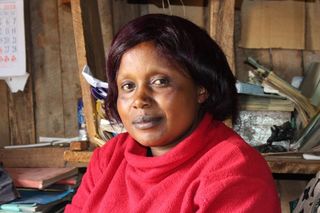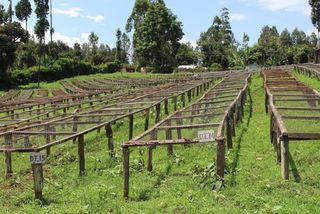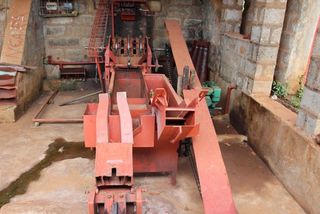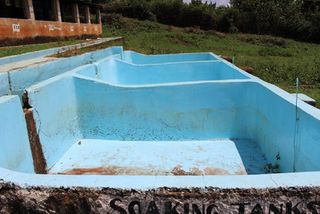December 2019
Feature #13
Our first time featuring Kenyan coffee, but not our first time with the Toasted Espresso team. `We first met the Toasted fam back in January 2019 when they gave us the low down on a Castillo from Ubaque (pronounced ew-wah-key).Obviously, we just couldn't pass up the chance of a Kenyan micro lot when it was offered to us.During December we explored:The Producer:Muthingini AA, is grown in the Kirinyaga district of Kenya by a group of approximately 2000 small lot holders within the Rwama Farmers Co-operative, located in the foot hills of Mount Kenya. The Muthingini factory was built in 1968 on 7 acres and employs seven permanent staff to serve the nearby communities. Co-operative members are provided pre-financing services, advances for school fees and farm inputs. Training and seminars are available for farmers, with field days being held on a regular basis by the minister of agriculture. Nearby to the Muthingini is a test farm used for demonstration of techniques and best practices. After picking, coffee is delivered to the factory where it is sorted before being mechanically de-pulped. Fermentation takes place overnight in fresh water before being washed and sorted in flotation channels. The coffee then remains soaking until space is available on drying tables, where it will remain for 7-15 days. AA refers to bean size, AA is the largest screen and often the most sought after as this size bean holds the highest complexity of flavours.A brief history:Coffee was first introduced in to Kenya in 1893, initially with planting at Bura, in Taita county. Over the following 11 years, it was grown in a further 2 locations. With no regulation of coffee, marketing was conducted by individuals or rudimentary institutions until 1933. Following a colonial government white paper in 1923, controlled planting outside of the European settlements, particularly Kisii and Meru was authorized. 1968 saw a coffee berry disease (CBD) epidemic that resulted in Kenya losing 50% of its coffee production. Such a crisis sparked an intensive breeding programme at the Coffee Research Station in Ruiru during the 1970’s. Ruiru 11 was the result of a breeding programme focused on varietals that had an immunity to CBD. The objectives of the breeding were to create a varietal that had high cup quality characteristics, but was compact enough to make it compatible with intensive planting. The result was a complex hybrid that garnered the best attributes from the progenitors, the male parent Ruiru was responsible for the CBD resistance and cup quality. The female, responsible for compactness and additional resistance to leaf rust and CBD. Ruiru 11 relies upon hand pollination for mass propagation, resulting in difficulty producing large volumes of seed to meet farmers demands. Ruiru was finally released in 1985.Batian: (Variety)
Batian, is a relatively new variety, released in 2010 after development by the Coffee Research Institute CRI (formerlyThe Coffee Research Station, CRS) in Ruiru, Kenya. In a terrior famous for its SL28 and SL34 varietals, it’s unsurprising that Batian shares some lineage with these varietals. Created from single tree selections of fifth generation male parents of Ruiru11, the result is a composite variety of 3 pure line varieties. Other genetic relations include the Timor Hybrid, also known as Tim Tim or HDT, a varietal derived from the spontaneous mating of Arabica and Robusta (Origin: Timor) Batian boasts many favorable attributes for producers including high yields, tolerance to coffee leaf rust, resistance to coffee berry disease and good cup quality. Other attributes that make it favorable for producers is its rare combination or tall stature and ability to cope with low management and adverse environmental conditions. The Lineage: SL28 and SL34 are among the most well known and highly regarded varieties of Africa. The Varieties were cataloged in the 1930’s by Scott Agricultural Laboratories and prefixed SL. SL28 a tall variety, can trace its lineage to the Bourbon family and is known for being productive for 60-80 years. SL34 also a tall variety, known for drought tolerance and cup quality is susceptible to major diseases. Recent research now suggests SL34 is related to Typica, not Bourbon as long held common legend suggested.
Tasting notes:
Country: Kenya
Region: Kirinyaga District
Producer: Rwama Farmers Co-operative
Farm / Estate: Approx 2000 small lot holders
Altitude: 1580 M.A.S.L
Varietal: SL28, SL34, Ruiru 11, Batian
Processing: Washed
Grade: AA
Flavour Notes: Blackberry, Red Currant, Lemonade
Recipe:
Recommended method: Pour over
Brewer: V60
Ratio: 1:15
33g Coffee – 500G Water
Time: 3.30 - 4 minutes
Recommended method: Cold brew
Recipe: 1 : 1.2.5 ratio
Coarse filter grind.
Place coffee inside muslin cloth.
Brew in cold water for 16 hours in the fridge.
Filter through a V60 or similar filter paper.
Serve over ice.
|
© Copyright Derelict Coffee Roasters |





